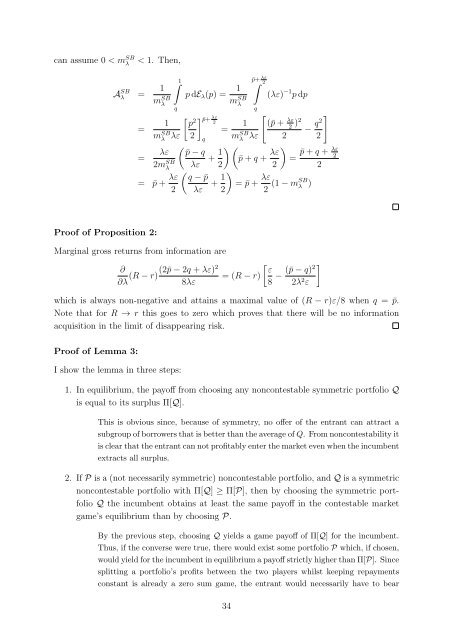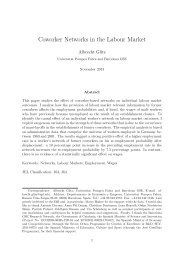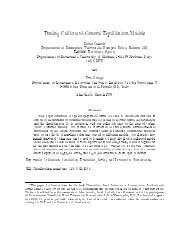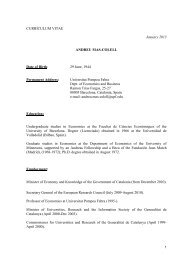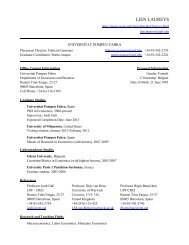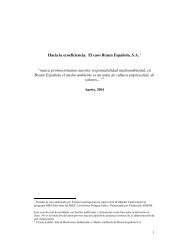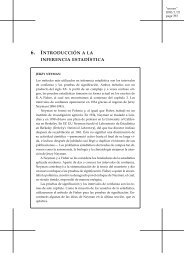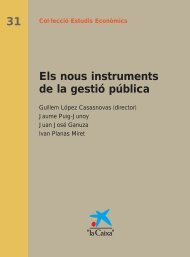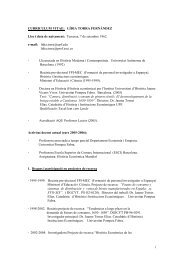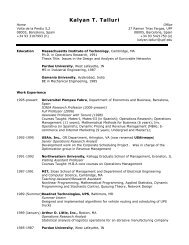Bank Competition, Information Choice and Inefficient Lending Booms
Bank Competition, Information Choice and Inefficient Lending Booms
Bank Competition, Information Choice and Inefficient Lending Booms
You also want an ePaper? Increase the reach of your titles
YUMPU automatically turns print PDFs into web optimized ePapers that Google loves.
can assume 0 < m SB<br />
λ < 1. Then,<br />
A SB<br />
λ =<br />
=<br />
=<br />
∫<br />
1<br />
1<br />
m SB<br />
λ<br />
q<br />
1<br />
m SB<br />
λε<br />
2m SB<br />
λ<br />
p dE λ (p) = 1<br />
m SB<br />
λ<br />
]¯p+<br />
λε<br />
2<br />
[ p<br />
2<br />
1<br />
λ λε =<br />
2<br />
q<br />
m SB<br />
λ<br />
( ¯p − q<br />
λε + 1 ) (<br />
2<br />
( q − ¯p<br />
λε + 1 )<br />
2<br />
= ¯p + λε<br />
2<br />
¯p+<br />
∫<br />
λε<br />
2<br />
q<br />
(λε) −1 p dp<br />
[<br />
(¯p +<br />
λε<br />
2 )2<br />
λε 2<br />
)<br />
=<br />
¯p + q + λε<br />
2<br />
= ¯p + λε (1 − mSB λ )<br />
2<br />
]<br />
− q2<br />
2<br />
¯p + q +<br />
λε<br />
2<br />
2<br />
Proof of Proposition 2:<br />
Marginal gross returns from information are<br />
[<br />
∂<br />
− 2q + λε)2<br />
ε<br />
(R − r)(2¯p<br />
= (R − r)<br />
∂λ 8λε<br />
8<br />
]<br />
(¯p − q)2<br />
−<br />
2λ 2 ε<br />
which is always non-negative <strong>and</strong> attains a maximal value of (R − r)ε/8 when q = ¯p.<br />
Note that for R → r this goes to zero which proves that there will be no information<br />
acquisition in the limit of disappearing risk.<br />
Proof of Lemma 3:<br />
I show the lemma in three steps:<br />
1. In equilibrium, the payoff from choosing any noncontestable symmetric portfolio Q<br />
is equal to its surplus Π[Q].<br />
This is obvious since, because of symmetry, no offer of the entrant can attract a<br />
subgroup of borrowers that is better than the average of Q. From noncontestability it<br />
is clear that the entrant can not profitably enter the market even when the incumbent<br />
extracts all surplus.<br />
2. If P is a (not necessarily symmetric) noncontestable portfolio, <strong>and</strong> Q is a symmetric<br />
noncontestable portfolio with Π[Q] ≥ Π[P], then by choosing the symmetric portfolio<br />
Q the incumbent obtains at least the same payoff in the contestable market<br />
game’s equilibrium than by choosing P.<br />
By the previous step, choosing Q yields a game payoff of Π[Q] for the incumbent.<br />
Thus, if the converse were true, there would exist some portfolio P which, if chosen,<br />
would yield for the incumbent in equilibrium a payoff strictly higher than Π[P]. Since<br />
splitting a portfolio’s profits between the two players whilst keeping repayments<br />
constant is already a zero sum game, the entrant would necessarily have to bear<br />
34


